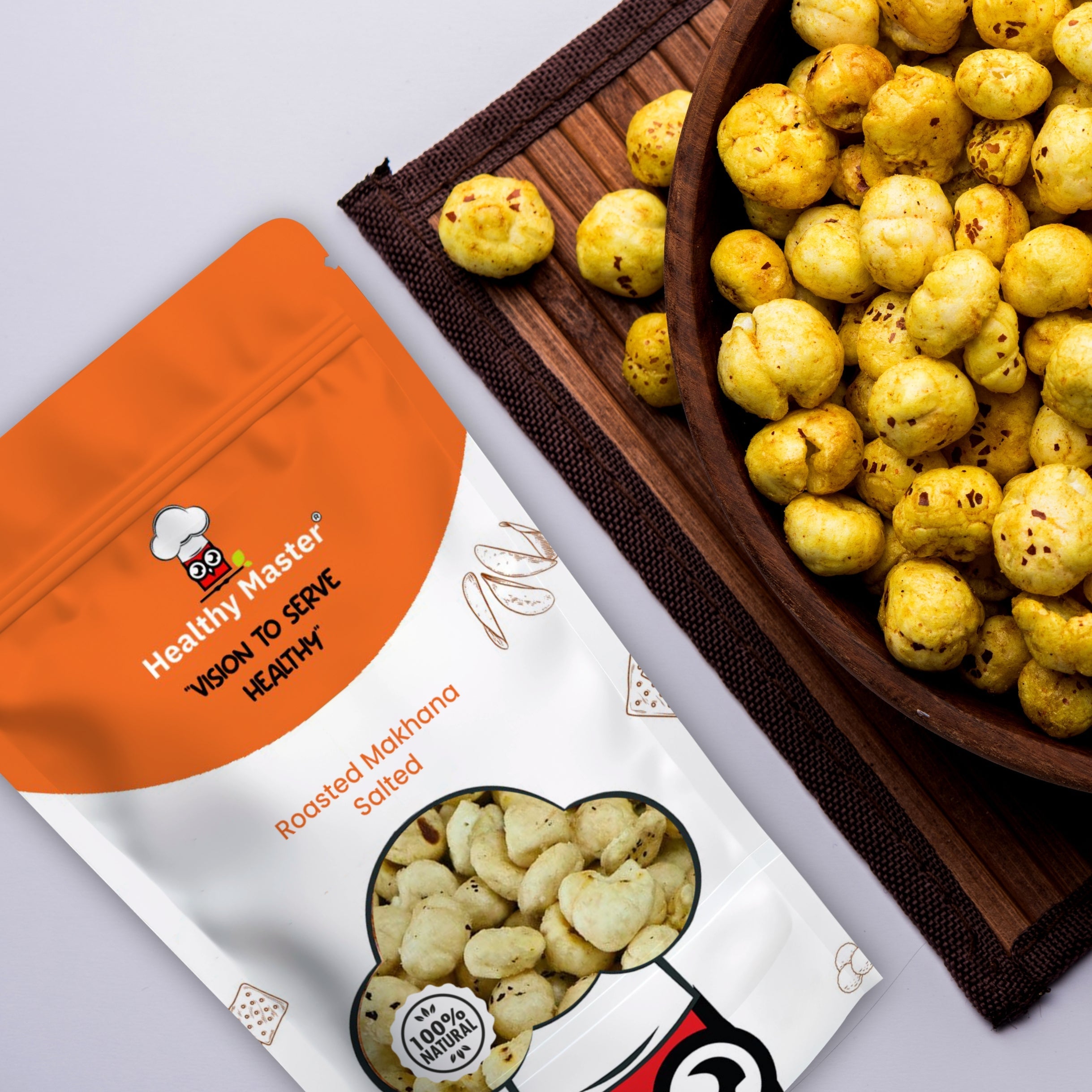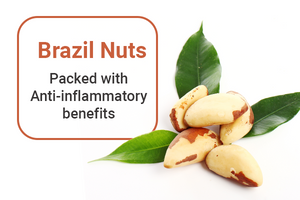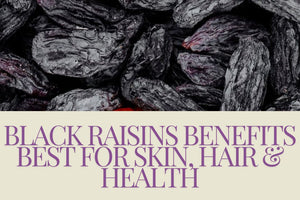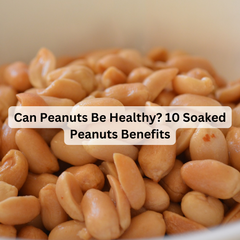Cashew nuts or Kaju is a common ingredient in Indian cuisines. Besides, Cashews are a favorite snack munched on by old and young alike with lots of health benefits. Cashews are kidney-shaped seeds that come from Anacardium occidentale, the scientific name for cashew trees. This tree produces both an apple-like fruit as well as a nut that hangs below it. Cashews were introduced in India and Africa by colonists. These nuts can be found all year around and have a long shelf life when stored correctly.
Although cashew nuts technically aren't nuts, they are rich in nutty flavours, much like peanuts and almonds. Cashew butter can be difficult to distinguish from other nut butter like peanut butter. They are also used in the production of dairy alternatives like cashew milk or cream. These nuts are delicious raw, roasted or salted!
Nutritional Value of Cashew Nuts

Cashews, like many nuts, may help improve your overall health. The health benefits of cashews are numerous. They have been shown to help with weight loss, better blood sugar control, and cardiovascular health. But how do cashews do all of that? Well, they are extremely nutritious. Hence, they can be a great addition to your diet, they are high in vitamins, minerals and beneficial plant compounds.
Unroasted, unsalted cashews provide you with good amounts of protein, good fats, carbohydrates, fibre, magnesium, copper, Manganese, Phosphorus, Zinc, Iron, Thiamine, Selenium, Vitamin K and Vitamin B6. Cashews are particularly rich in unsaturated oils, which is a category of fats linked to lower risks of deaths due to heart diseases.
They are also low in sugar and are a rich source of fibre. Interestingly, they are almost as high in protein as cooked meat. Cashews also contain significant amounts of copper, which is essential for energy generation in the body, brain development and strong immunity. They are rich in magnesium and manganese which are important nutrients for bone health.
Antioxidant Powerhouse
Cashews, like a lot of seeds and nuts, are antioxidant powerhouses. Antioxidants are compounds that have many health benefits. They protect your body from damage-causing molecules known as free radicals. This reduces inflammation.
Research shows that antioxidants found in nuts such as almonds, walnuts, and pecans can lower levels of oxidative damage. Cashews could have similar antioxidant profiles, which may explain their potential oxidation-fighting properties. This is especially true for roasted cashews which have a higher antioxidant content than their raw counterparts. Cashew nuts are rich in polyphenols, carotenoids and other antioxidants that help you stay healthy and free from diseases for a long time. Essentially, the reason why there are so many health benefits of cashews is that these nuts are extremely nutrient-dense.
Let's now check out some really amazing benefits of eating cashews.
Improves Heart Health

Cashew nuts, contrary to myths, are good for your heart health. Cashew nuts contain essential fatty acids, potassium and antioxidants which can keep your heart healthy. They are rich in phytosterols and phenolic compounds and oleic acids that improve blood vessel strength and, in turn, heart health.
Cashew nuts can help lower bad cholesterol (LDL) and increase good cholesterol (HDL). Cashew nuts are also anti-inflammatory and can reduce inflammation in the body that could lead to heart diseases.
Reduces Blood Pressure
Although there are many cashew nuts, it is especially beneficial for high BP patients. Cashew nuts contain healthy unsaturated fats as well as minerals such magnesium, potassium, L-arginine which can reduce blood pressure by dilation of blood vessels.
Helps in Diabetes Prevention and Management
Cashew can be a good way to control blood sugar levels for people with type 2 diabetes. Cashews are a good source of fibre, which is something that prevents blood sugar spikes effectively. However, it is best to limit your intake to 3-4 cashews daily due to its high-calorie content.
Boosts Immunity
Cashew nuts contain zinc and vitamins that will keep you healthy. Zinc is essential for basic cell functions and immune enhancement. Zinc can be ingested regularly to increase your immunity. The benefits of eating cashews can be seen in kids, they will stop falling sick frequently.
Keeps your Bones Strong
Talking about cashew nuts' health benefits, how can we ignore their power to boost bone health? Well, cashew nuts are rich in minerals that help build strong bones. They contain high levels of calcium and copper, which give strength to our bones. Copper is known to help keep joints flexible and healthy by creating collagen.
Boosts Healthy Brain Functioning
For the brain to function properly, it needs a steady supply of fatty acids from the diet. Brain booster nutrients found in cashew nuts may boost brain functions and help keep your memory sharp. You can consume overnight-soaked cashews to improve brain function.
Help in Weight Management

The benefits of eating cashews like these are especially important for people who work in the beauty industry. Cashews can be eaten as a snack or in nut mixtures. Cashew nuts have high levels of calories, protein, and fibre. Hence, they can help you feel fuller for longer periods and curb your food cravings. However, it is important to eat nuts in moderation, as they are rich in calories.
Good for your Skin
Natural oil found in cashew nuts is good for you. Cashews are also rich in selenium, zinc and iron. These nuts can help keep your skin healthy and young. Copper increases the production of collagen and elastin. Collagen is a vital structural protein responsible for your skin's elasticity.
Good for Hair
Cashew nuts' health benefits cover your hair too. Cashew contains copper, which helps to produce hair pigment-melanin. This enhances your hair colour. Besides, your hair will stay shiny and healthy with the consumption of cashews— thanks to the essential fatty acids in them.
Good for Eyes
The antioxidants in cashews are lutein and zeaxanthin, which offer protection against UV rays. These antioxidant pigments are found in the eyes naturally and can help reduce the risk of developing AMD and cataracts.
Might Boost Male Fertility
Although there are many benefits of eating cashews, this one is indeed important. Cashew nuts contain zinc, which is important for increasing fertility and sperm count in men. Regular cashew intake may also help to control weight and diabetes, which can dramatically increase male fertility.
Conclusion
So, now you know cashew nuts health benefits simply have no end. As discussed above, cashew nuts are one of the most nutritious nuts. However, it is not recommended to be consumed in plenty on a daily basis mainly due to its high-calorie content. This is definitely why diet-conscious individuals should have cashew nuts in moderation. But they are nutrient-dense and contain a lot of vitamins, minerals, essential fatty acids and antioxidants that boost health and help live a long life.
It does not matter what your needs are, if you are looking for premium quality cashews to buy, Healthy Master is the right option.
 Deal of the week : Trial Snack Box - 18 Wholesome Delights Just at ₹ 899.00
Deal of the week : Trial Snack Box - 18 Wholesome Delights Just at ₹ 899.00





















